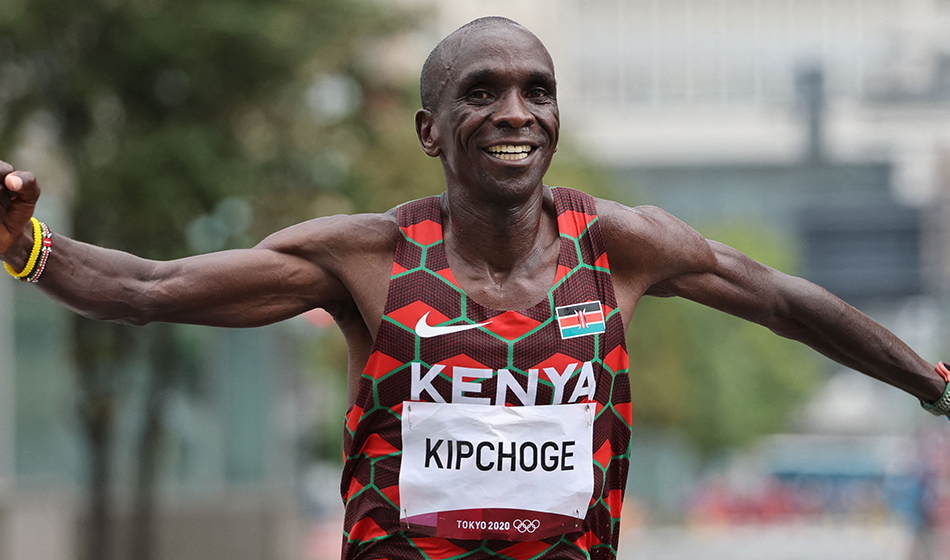Early Life and Background
Eliud Kipchoge, born on November 5, 1984, in Kapsisiywa, Nandi County, Kenya, has become synonymous with marathon greatness. Raised in a rural farming community, Kipchoge’s running talent was nurtured from a young age. He grew up running to and from school, a distance of about 3.2 kilometers each way, which laid the foundation for his future in long-distance running.
Athletic Career
Early Success and Track Career
Kipchoge first gained international attention when he won gold in the 5000 meters at the 2003 World Championships in Paris. His early track career saw him consistently competing against some of the world’s best middle-distance runners, including legendary figures like Hicham El Guerrouj and Kenenisa Bekele. His success on the track was a precursor to his eventual dominance in marathons.
Transition to Marathon
In 2013, Kipchoge transitioned to marathon running, a decision that would redefine his career. He made an immediate impact by winning the Hamburg Marathon in 2:05:30. This victory marked the beginning of a series of outstanding performances in the world’s most prestigious marathons.
Record-Breaking Achievements
World Marathon Majors
Kipchoge has won numerous World Marathon Majors, including the London, Berlin, and Chicago Marathons. His consistent performances and multiple victories have solidified his reputation as one of the greatest marathon runners of all time.
World Records
Kipchoge set the marathon world record on September 16, 2018, at the Berlin Marathon with a time of 2:01:39, breaking the previous record by a staggering 1 minute and 18 seconds. This record-breaking run showcased his extraordinary talent and endurance.
INEOS 1:59 Challenge
On October 12, 2019, Kipchoge made history by becoming the first person to run a marathon distance in under two hours. Although the INEOS 1:59 Challenge was not an official race and therefore did not qualify for a world record, his time of 1:59:40 was a monumental achievement in human endurance.
Training and Philosophy
Kipchoge’s training regimen is renowned for its intensity and discipline. He trains in Kaptagat, Kenya, at a high-altitude camp, which helps build his endurance and strength. His training involves a mix of long runs, speed work, and strength training, coupled with a focus on mental preparation.
Kipchoge is known for his philosophical approach to running. He often emphasizes the importance of mental strength, discipline, and a positive mindset. His mantra, “No human is limited,” reflects his belief in the limitless potential of human endurance.
Impact and Legacy
Influence on Running
Eliud Kipchoge’s achievements have had a profound impact on the sport of running. He has inspired countless athletes around the world to pursue their own running goals and pushed the boundaries of what is considered possible in marathon running.
Honors and Awards
Kipchoge has received numerous accolades for his contributions to athletics, including being named the IAAF World Athlete of the Year and being honored with the Laureus World Sports Award for Exceptional Achievement.
Future Prospects
As of now, Kipchoge continues to compete at the highest levels, aiming to add more titles and records to his already illustrious career. His focus remains on pushing the limits of human performance and inspiring future generations of runners.
Conclusion
Eliud Kipchoge’s journey from a small village in Kenya to becoming the greatest marathon runner in history is a story of dedication, resilience, and unparalleled talent. His achievements have not only elevated the sport of marathon running but also inspired a global audience to believe in their potential. As he continues to defy expectations and set new standards, Kipchoge’s legacy as a marathon legend remains firmly entrenched.
ALSO READ:The Unbeatable Ferdinand Omanyala: Kenya’s Sprinting Sensation


